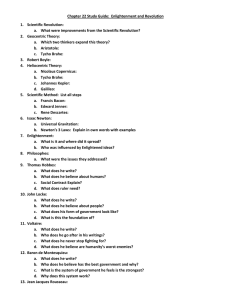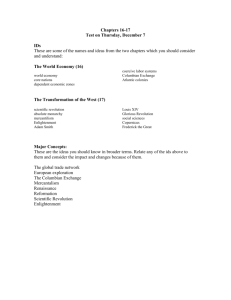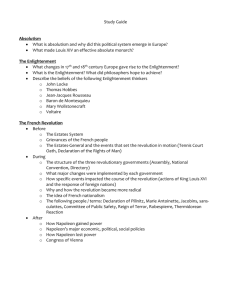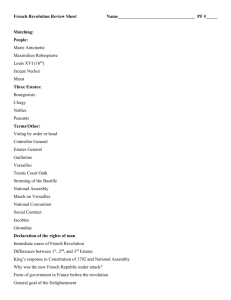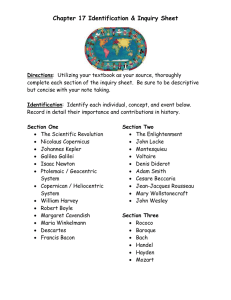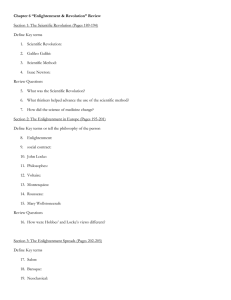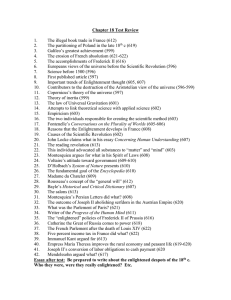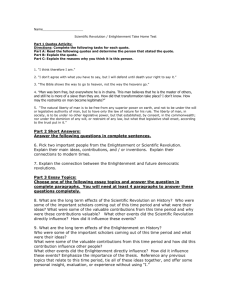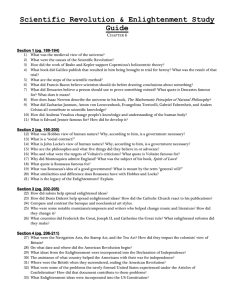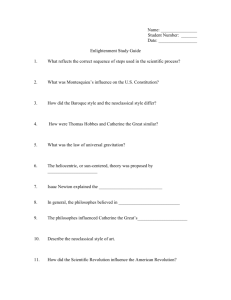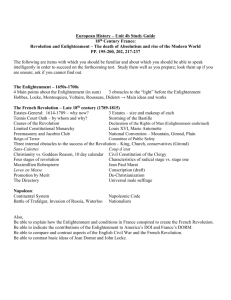AP World History
advertisement
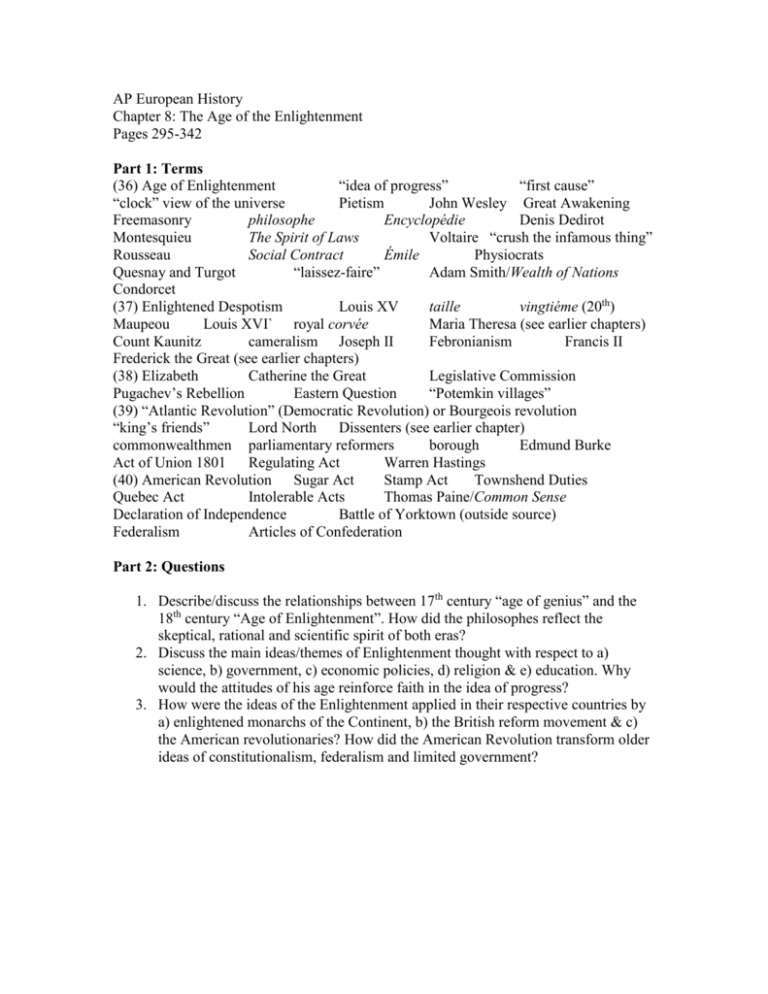
AP European History Chapter 8: The Age of the Enlightenment Pages 295-342 Part 1: Terms (36) Age of Enlightenment “idea of progress” “first cause” “clock” view of the universe Pietism John Wesley Great Awakening Freemasonry philosophe Encyclopédie Denis Dedirot Montesquieu The Spirit of Laws Voltaire “crush the infamous thing” Rousseau Social Contract Émile Physiocrats Quesnay and Turgot “laissez-faire” Adam Smith/Wealth of Nations Condorcet (37) Enlightened Despotism Louis XV taille vingtiéme (20th) Maupeou Louis XVI` royal corvée Maria Theresa (see earlier chapters) Count Kaunitz cameralism Joseph II Febronianism Francis II Frederick the Great (see earlier chapters) (38) Elizabeth Catherine the Great Legislative Commission Pugachev’s Rebellion Eastern Question “Potemkin villages” (39) “Atlantic Revolution” (Democratic Revolution) or Bourgeois revolution “king’s friends” Lord North Dissenters (see earlier chapter) commonwealthmen parliamentary reformers borough Edmund Burke Act of Union 1801 Regulating Act Warren Hastings (40) American Revolution Sugar Act Stamp Act Townshend Duties Quebec Act Intolerable Acts Thomas Paine/Common Sense Declaration of Independence Battle of Yorktown (outside source) Federalism Articles of Confederation Part 2: Questions 1. Describe/discuss the relationships between 17th century “age of genius” and the 18th century “Age of Enlightenment”. How did the philosophes reflect the skeptical, rational and scientific spirit of both eras? 2. Discuss the main ideas/themes of Enlightenment thought with respect to a) science, b) government, c) economic policies, d) religion & e) education. Why would the attitudes of his age reinforce faith in the idea of progress? 3. How were the ideas of the Enlightenment applied in their respective countries by a) enlightened monarchs of the Continent, b) the British reform movement & c) the American revolutionaries? How did the American Revolution transform older ideas of constitutionalism, federalism and limited government?
